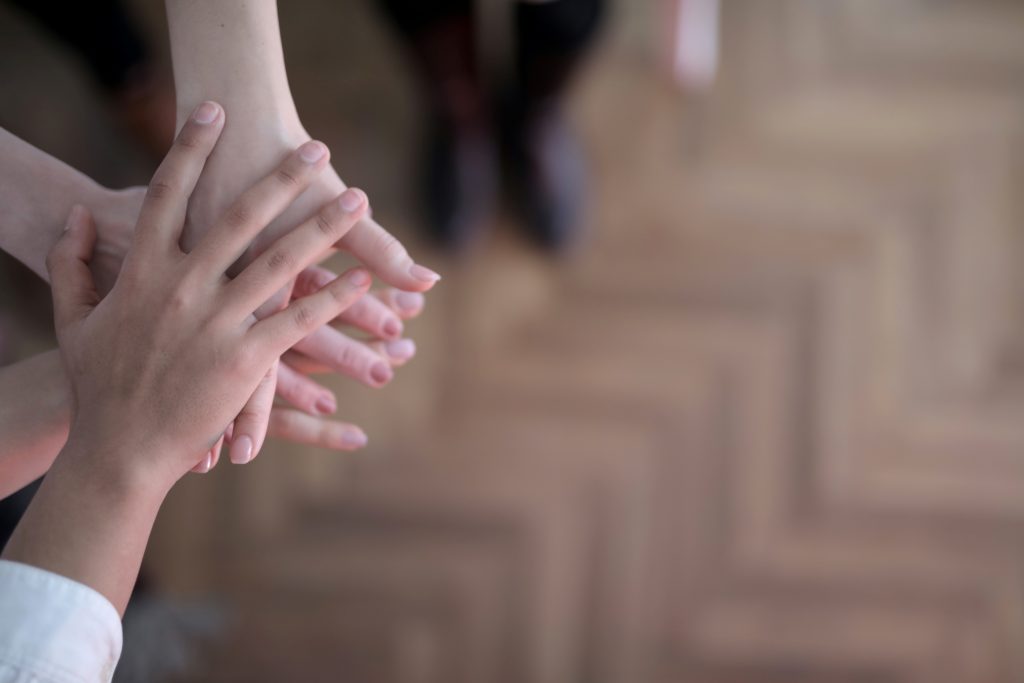Anxiety can arise at different times in our and our children’s lives. Here are some resources to help.
Here we’ve listed some of our favourite articles, websites, and video links for children and adults that we hope you’ll find useful.
Understanding anxiety
Slides from our webinar with Dr Tamsin Owen, Clinical Psychologist and Deputy Head of Emotional Health Service, AfC.
This article from Understood.com discusses the ADHD-Anxiety connection.
Antoinette is a Consultant Hypnotherapist with some 20 years experience in helping children and adults with stress-related conditions. Here she discusses the behaviours involved.
Supporting anxiety in children
This clip from our webinar with Charlotte O’Reilly shows Charlotee demonstrating a simple exercise on slow breathing alongsdie a helpful diagram. The exercise allows children, and adults, to use their hand as a guide whilst they inhale and exhale slowly. The diagram can be found in her slides from the webinar here.
- Videos: Cosmic Kids Yoga
The Cosmic Kids Yoga YouTube channel has an array of videos for children to practice yoga, mindfulness and relaxation. The channel makes it fun for children by creating stories that children can connect with whilst practising these techniques.
Anxiety, stress and anger can lead to tight and tense muscles. Indeed children with ADHD are prone to more muscle tension. Your child can follow this Progressive Muscle Relaxation video by tensing and releasing different muscle groups. This is perhaps an exercise you can do together with your child to make them feel more at ease.
- Webinar: Exercise and Sensory Integration
Sensory input may help with calming. Physical activities such as jumping jacks, jumping on a trampoline and going on a swing can all provide sensory input and lead to calming. Listen here to Charlotte O’Reilly discuss how this works and gives some examples in our webinar “Building a sensory smart home”.
- Resource: Weighted Blankets
Weighted blankets provide calming pressure on children and can help sensory seeking children and adults calm their bodies, helping aid a peaceful nights’ sleep. The extra weight can help to relieve anxiety and stress, easing the transition and helping to prevent melt-downs and repetitive behaviours.There are a variety of blankets available on the internet.
- Books: Recommended books for childhood anxiety
The ‘What To Do When You Worry Too Much’ by Dawn Huebner and ‘The Huge Bag of Worries’ by Virginia Ironside are books both children and parents can read together.
‘Helping Your Child with Fears and Worries’ by Cathy Cresswell is a guide for parents and carers that includes practical strategies to help your child overcome their anxiety.
The Emotional Health Service has provided a list of resources that includes help and advice on how to talk to your children about the coronavirus, activity ideas, coping skills and more.
Supporting anxiety in adults
Our Facebook group is a community where you can get in touch with other parents and carers of ADHD children and exchange in a safe space.
Use the app of your choice a few minutes a day to help alleviate any stress and anxiety.
- Article: Find time in the day for self-care
This article provides guidance on how to take care of yourself, particularly when children are at home. Having some “me time” will allow you to unwind, relax and reboot yourself.
- Websites: Practice a hobby or cultivate a new skill
This could be writing, drawing, dancing, knitting, gardening, DIY, playing an instrument – anything goes! If you’re stuck for ideas (or you’ve watched everything on Netflix!) and would like some inspiration, websites such as Skillshare, Udemy and FutureLearn provide a range of classes to help you pursue your interests.
- Videos: Exercise to improve your physical and mental health
There are a plethora of free exercise videos for you to try on YouTube. If you’d like some guidance on what to try, take a look at the following YouTube channels that offer a range of low and high-intensity exercises: PopSugar, HASfit, Heather Robertson, Yoga with Adriene.
- Websites: Read or listen to audiobooks
Reading and audiobooks provide some much-needed escapism and are a great way to pass the time. If you’re not sure what you’d like to start reading or listening to, the Goodreads website can provide some recommendations for you.
Borrow eBooks for FREE Cerebra are offering free borrowing of ebooks for 28 days. They have a special ADHD list of books, some for adults and some for kids, some about ADHD and some just to be enjoyed. Find our here how to get access.
This downloadable resource by the Emotional Health Service provides helpful information on how to sleep better.
We all need sleep to function but sleeping well. It’s not uncommon to have one or two poor night’s sleep a month but if you have found yourself struggling more often and are feeling worried, you’ll find good advice on The Sleep Council’s website which has a range of resources to help if you are struggling with sleeping issues.
We hope that these resources can help you and your family feel calmer in times of crisis. You are not alone, and if you have come across other helpful content, website, and resource, please share them with us and other parents on our Facebook page.
Being a parent is not always easy, you are doing the best with what you have. Just remember that we’re in a pandemic and you’re not expected to be productive and a super-hero parent all the time! Be kind to yourself and be rest assured that you’re doing a fantastic job.

